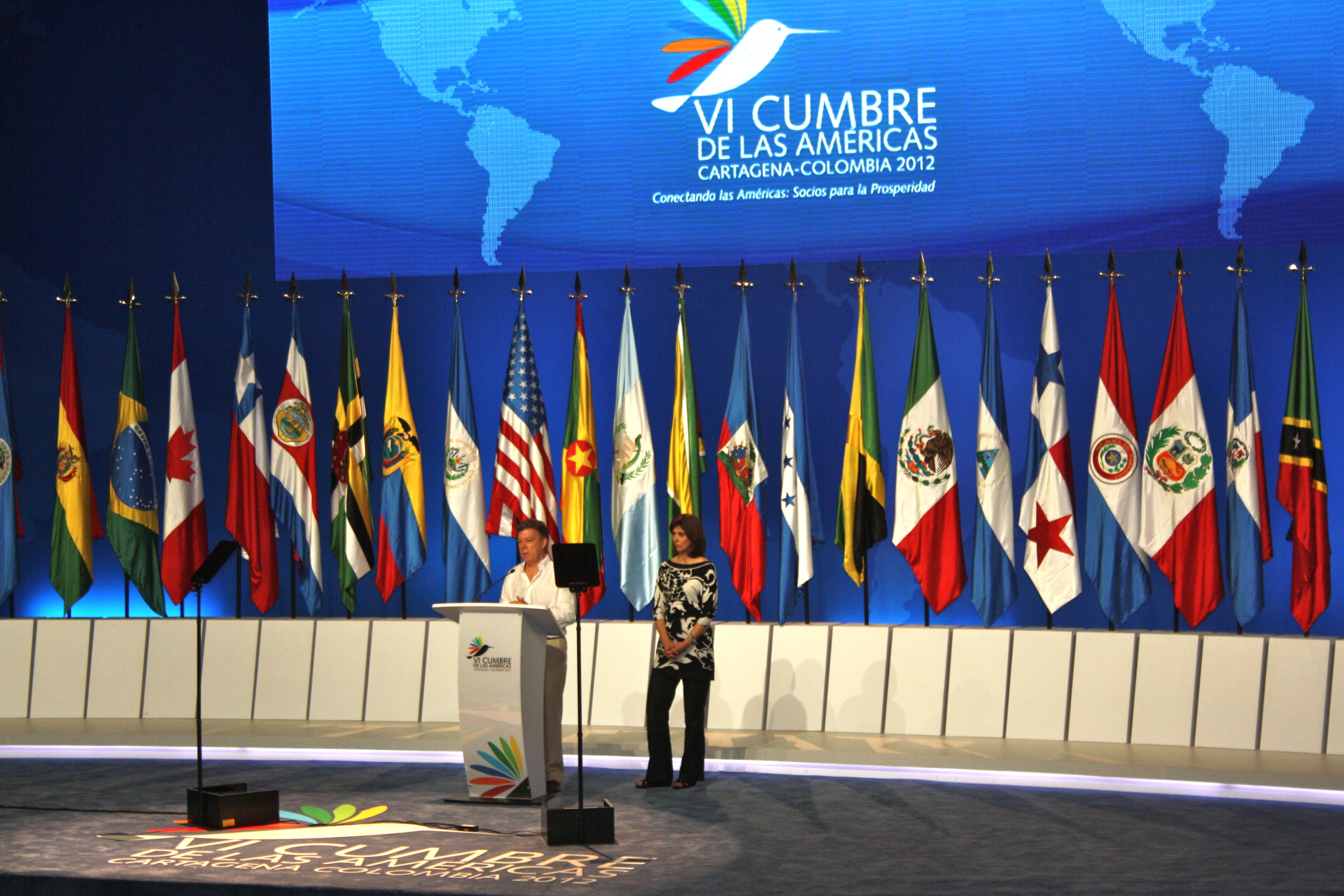An Opportunity to Address China’s Growing Influence over Latin America’s Mineral Resources
The United States has an opportunity to explore new ways to deepen its strategic and economic partnerships in the region, counterbalance China’s growing influence and secure supply chains for critical minerals at the Summit of the Americas.

The Summit of the Americas provides a prime opportunity for the United States government to work with its like-minded partners in the region to address a major strategic challenge: China’s growing influence over Latin America’s critical and natural mineral resources.
The Ninth Summit of the Americas, which is being hosted this week in Los Angeles, CA, brings together leaders from the countries of North, South, and Central America, and the Caribbean to promote democracy and human rights, increase competitiveness, strengthen regional security, and address key issues of the day such as clean energy and supply chains. Given the summit’s focus on “Building a Sustainable, Resilient, and Equitable Future,” securing the United States’ supply of critical and natural resources should be top of mind for the American delegation.
In the past two decades, Chinese-owned companies have ramped up their investments in the extraction and processing of so-called “critical minerals” in Latin America—including lithium and nickel—which the United States defines as “non-fuel minerals essential to the economic and national security of the United States.” Chinese-owned companies have also been deepening their investments in other mineral resources in Latin America—including copper, iron-ore, and gold—which, though not defined as “critical,” nevertheless serve as the technological foundation for a range of consumer, clean energy, and military technologies. Figure One illustrates the extent of Chinese investment in mineral commodities in the region between 2017 and 2022 (Note: This graphic includes a non-exhaustive list of projects identified through a search of publicly available resources such as news articles and reports).
Between 2018 and 2020, China’s net foreign direct investment in mining overseas totaled nearly $16 billion, including investments in South America’s so-called “lithium triangle,” the region spanning parts of Argentina, Chile, and Bolivia that account for roughly 56 percent of the world’s lithium resources. As demand for lithium and other critical minerals continues to grow—driven in part by the growing demand for lithium-intensive clean energy technologies like rechargeable batteries—China has wasted no time in securing its share of global lithium resources.
In February 2022, for instance, Chinese-owned Zijin Mining announced plans to invest $380 million in a new lithium carbonate plant in Argentina’s northern province of Catamarca. And in 2021, China’s largest lithium producer, Ganfeng Lithium, completed a partial acquisition of another major lithium mining project in Argentina. Chinese-owned companies have made similar investments in Colombia’s copper and zinc markets, as well as in Peru’s copper mines.
Figure 1. A depiction of the Chinese mineral commodity investments and agreement in Latin America between 2017-2022.
These investments, part of China’s broader effort under its Belt and Road initiative to expand its economic influence into the Western Hemisphere, have contributed to China’s growing global mineral resources dominance. For rare earths alone—a subset of the larger category of critical minerals—China is estimated to account for approximately 85% of the world’s processing capacity.
This presents a strategic challenge for the United States and its allies, who are increasingly dependent on China’s production of mineral resources. Presently, the United States is 100-percent net import reliant on its supply of at least 13 of the 33 critical minerals included in the Department of the Interior’s February 2022 list of critical minerals for which the U.S. Geological Survey produces data, and it is more than 50 percent net import reliant for at least an additional 13 of these critical minerals. For nearly 40 percent of the critical minerals listed, China was the leading supplier.
The United States needs to address China’s ongoing efforts to extend its influence over critical and natural mineral supply chains into Latin America. As the ongoing global shortage of semiconductors has demonstrated, the economic well-being and national security of the United States depends on building secure, resilient and diversified supply chains for strategically-important technologies and the critical minerals that support them. Allowing a geostrategic competitor like China to wield disproportionate influence over access to critical minerals—or allowing production to become concentrated in a single geographic region—poses a serious risk to the United States and its allies.
The United States has an opportunity to explore new ways to deepen its strategic and economic partnerships in the region, counterbalance China’s growing influence and secure supply chains for critical minerals at the Summit of the Americas. In particular, the Summit’s leaders should commit to working together to prevent and mitigate supply chain disruptions and boost investments in new mining and processing facilities that use best mining practices to protect environmental, human and community health. The parties could also commit to collaborating on mapping existing critical and natural mineral resources capacity in Latin America to inform foreign investment and trade.
Finally, the leaders should explore opportunities to develop downstream processing and manufacturing capacity in the region—especially to advance the clean energy transition in the Western Hemisphere—and evaluate the financial, regulatory and policy changes that will be needed to facilitate that shift. Taken together, these measures would mark a meaningful first step towards building more resilient supply chains and supporting efforts to transition to clean energy production in the region.
When it comes to securing critical and natural mineral supply chains, time is of the essence. The Summit of the Americas is the ideal platform to chart a path toward tangible solutions, and participants should grasp the opportunity with both hands.




